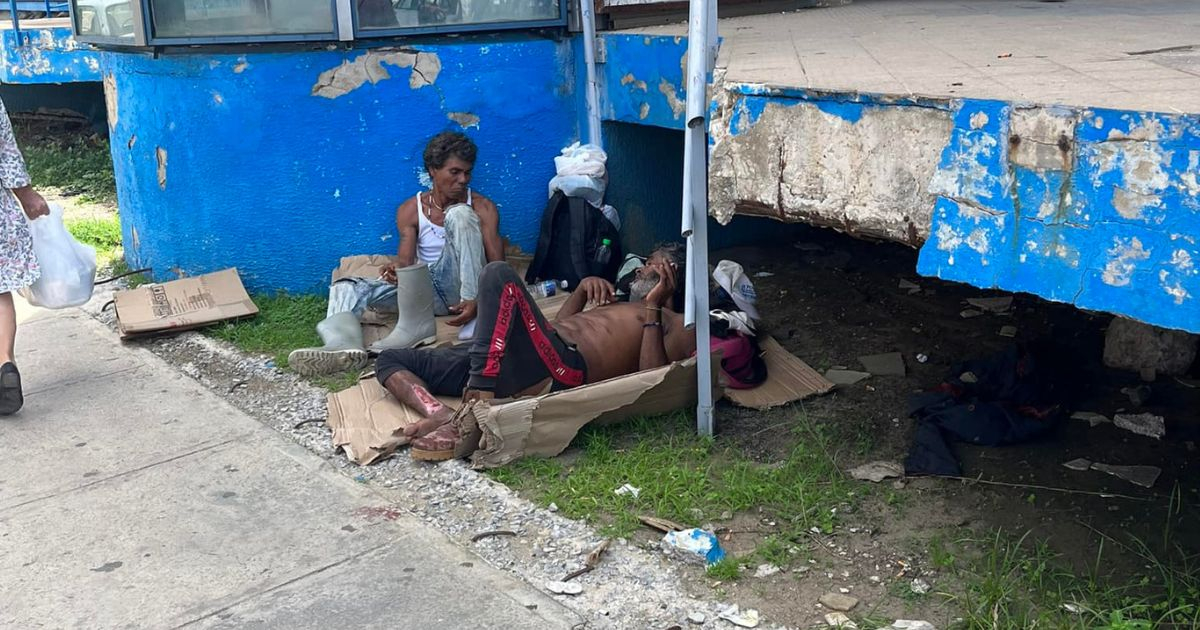
The economic crisis in Cuba, the worst in the last 60 years, has led many people to live in conditions of destitution, a sad situation that the regime does not address and often reacts to with complete indifference.
However, the reality that the Cuban government tries to conceal is reported daily on social media by internet users.
Arianna Llana raised an alert this Thursday in the Facebook group "EL Vedado de Hoy" about people living in begging conditions in the lower levels of the Galerías de Paseo complex in Havana.
"It's a shame that there isn't any institution dealing with this," the woman pointed out, warning that, for all to see, these individuals live in conditions of begging while the regime's institutions responsible for solving these problems do nothing.
The same person reported a similar situation an hour earlier.
"I went out to get bread and encountered this very ugly sight, and it's not the first time I've seen it," the person pointed out, once again denouncing the Cuban regime's inaction regarding the consequences of poverty in the capital.
Begging in Cuba is a reality that the government can no longer conceal as it did in the past. The figures from one year to the next show significant increases in extreme poverty in the country.
According to the Ministry of Labor and Social Security (MTSS), Cuba has recorded 3,690 wandering individuals between 2014 and 2023, as noted in a report by the state-run newspaper Trabajadores, published last April.
Inflation and shortages of basic products are key factors contributing to the increase in begging in Cuba, a situation that the regime plans to counter with its (yet another) scheme to address "vagrants."
In streets teeming with the mentally ill, the elderly, people with disabilities, and alcoholics, this phenomenon is a reality that Miguel Díaz-Canel's government cannot hide. As a result, the Council of Ministers approved an update to the policy for their care last May, ten years after it was first established.
Filed under: